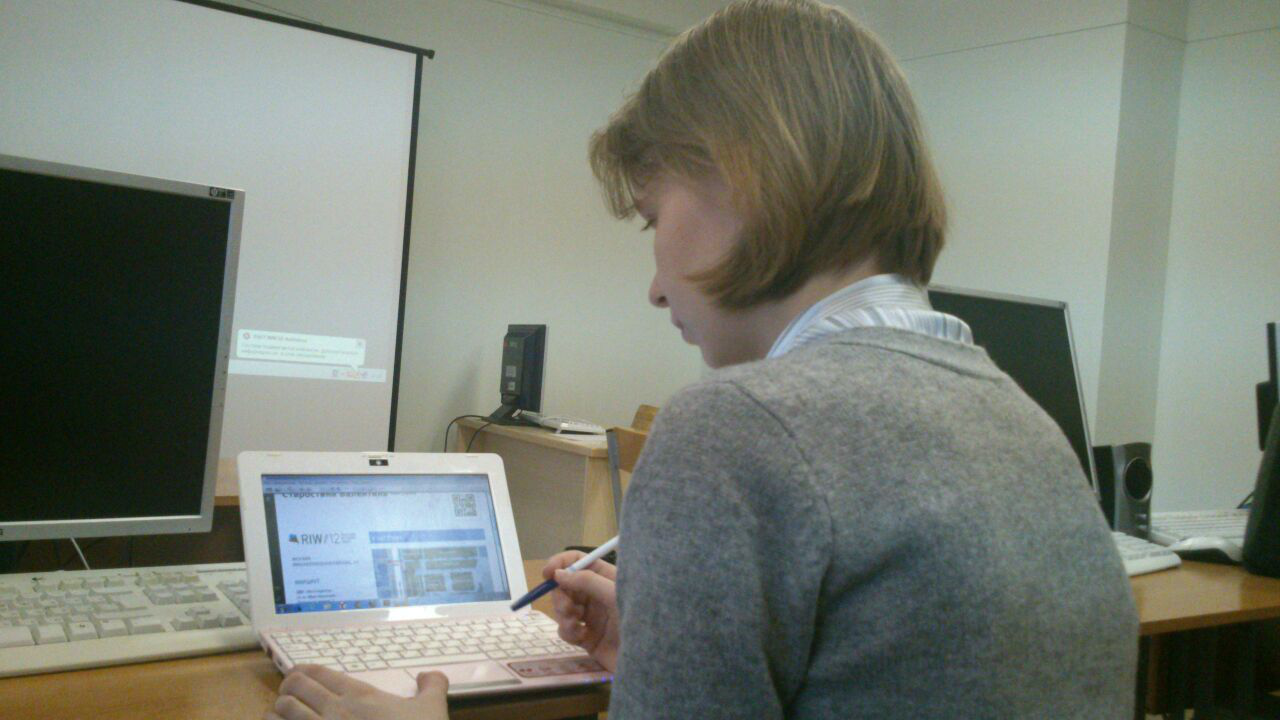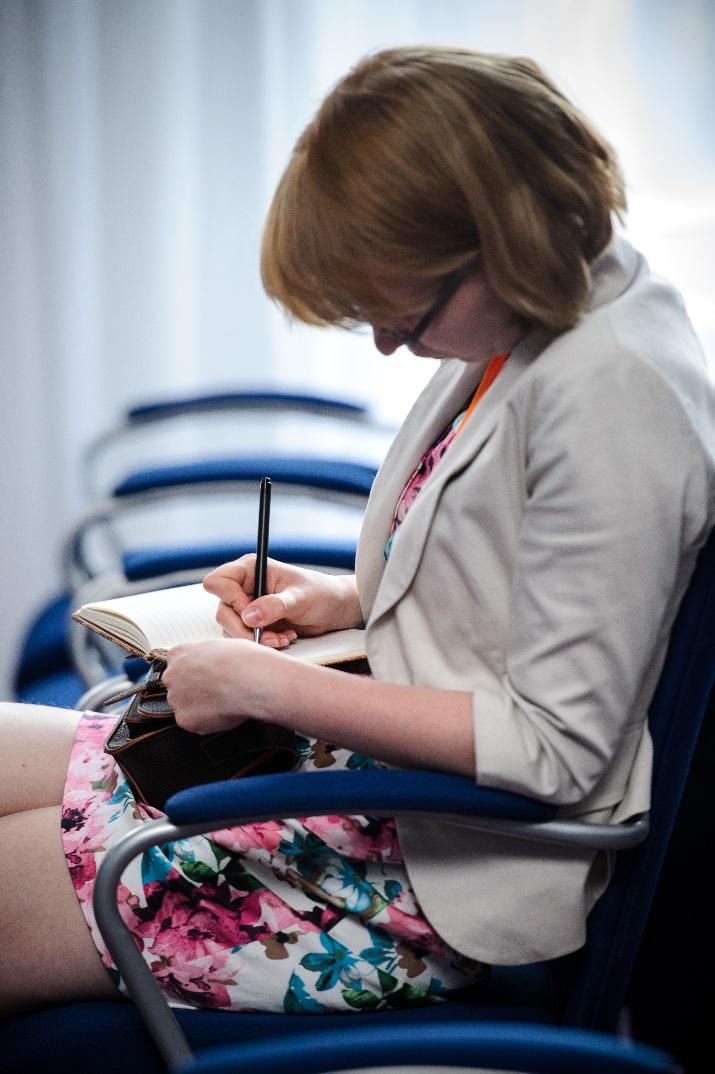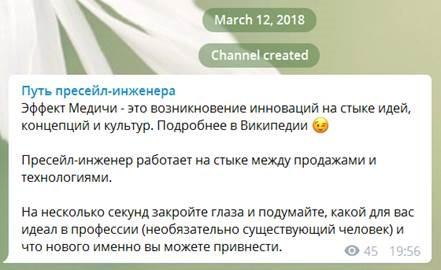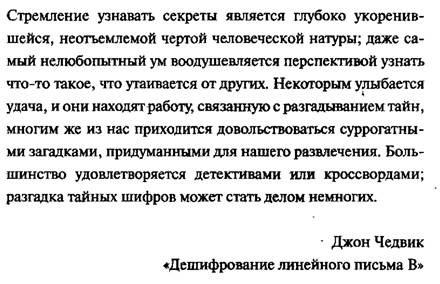Path pre-engineer, or internship, life-changing
It was 2014, the dollar cost 35 rubles, I finished my studies at the university. I chose a rather rare specialty for a girl - information security. The last session was approaching, it was necessary to prepare for state examinations. Between couples, I worked as a laboratory assistant at the department, and I also volunteered to attend the Olympics in Sochi. There was no time to be bored, when suddenly I came across the announcement of an internship in the specialty - a pre-sale information security engineer was required in Jet Infosystems. Deciding that this opportunity should not be missed, I threw myself another challenge. She responded to the vacancy, completed the test task, passed the interview - and continued to conquer the world of information security in practice.
Today, 5 years later, I want to share what it is like to be an intern and what happens after. There was everything on my way: experiences, mistakes, tears, burnout, overcoming oneself and getting on the honor roll followed the first undisturbed days. But first things first.

Most of my classmates after school wanted to become lawyers or economists. I also wanted something more interesting. Once a friend of mine - we went to basketball together - advised me of Simon Singh's book The Book of Ciphers. The secret history of ciphers and their decryption. " Then I read no more than 40 pages, as higher mathematics began, but the story was so exciting, there was so much romance in all of this that I wanted to study this particular subject area. So I entered the university for an information security specialist.
')
During my studies, like many classmates, I had little idea who a security specialist was and what he should do in life. Sometimes I even wondered if I could ever work in my specialty. At university, we were often frightened that they would not take anywhere without the right work experience. Sometimes it seemed that it would be so - in almost every vacancy it was required to know all the regulatory documents, all network technologies and even specific solutions. However, there were other teachers who called for “turn on” the mind and not panic - recruiters are also mistaken, they explained.
The subject of my diploma was the protection of information in the cloud. Since the university did not talk about commercial products, and in the third chapter I had to write about the practical application, in search of information I went to the profile exhibition InfoSecurity. There I learned for the first time about Jet Infosystems. At the company's booth, I was told about the existing approaches and developments in the field of protection of cloud computing and presented a corporate magazine in which I found an article useful for myself about the virtualization environment. My diploma will later become one of the reasons why they will take me on an internship.
Higher education is when you are given basic knowledge, and you just become a normal person. To get a good job, this will not be enough - you will need applied knowledge. Understanding this, I went to the courses. First, I mastered the basics of SAP ERP, and then I was invited to study a new at that time SAP HANA solution. Here, I began to take a picture of how business processes in large companies are arranged. During the courses, I met the guys who worked at Jet Infosystems and did their first project with SAP HANA. They told me that there is such a position “presale engineer” - at the junction of hard and soft skills, and it is perfectly suited for starting. Since I studied in a humanitarian university, and we were not given a lot of technology, I was very hooked.
My sister is a hr-manager, so I know that internships are different: when you pay, when you pay and gratuitous. I myself had several internships where I was just told about the company and its approaches to work. Things did not go further.
With “Jet Infosystems” everything was different. When I responded to the vacancy, they gave me a task: I had to offer a minimum set of protection tools for a specific site of the customer. In fact, it was a test whether the candidate knows at least somehow the information security market. Since at that moment I was preparing for state examinations, it was not difficult for me to answer the questions. Then there were two face-to-face meetings at which I had to substantiate the solution of the problem, find out what was the responsibility of a pre-sales engineer, and go through several severe blitz polls from an hr-specialist. I remember, in the end, I was asked to ask questions, and since it was student time, hungry, I asked: how was the company with the canteens? The answer about a large number of cafes and canteens, where you could even buy tea for 3 rubles and muffins for 15, I was very impressed then.
As a result, out of more than 150 candidates, 4 interns, including me, were selected. We were joined by 2 beginner presale engineers who got a job in the company shortly before us, and several “old men” who wanted to refresh their knowledge. Especially for us, we developed a program, the day was scheduled, which in itself was already very cool. It was assumed that each of the three topics - protection of the virtualization environment, the information security incident monitoring center (SOC), and basic protection tools (firewalls, antiviruses, etc.) - will be closed by 2 presseyl engineers.
How was our usual day? Specialists of the company, whether it be a design engineer, implementation engineer or head of a department, lectured us. In the breaks, we watched training videos: basically there were basic things about what IS subsystems exist and what solutions they can be implemented. At some point, we were told what the cycle of work of a pre-sales engineer consisted of: we heard many abbreviations, which usually put a new person in a stupor in a company. In addition, it was difficult to remember who is sitting where. Our office was big enough - open space. Therefore, we carried with us a notebook in which we wrote down everything that had to be remembered. Since those times, we have got a joke "I go with a notebook."

Van lav's notebook
Later, we began to give easy applications that we carried out under the control of pre-engineers. The first application, of course, seemed to me the most difficult: it was necessary to prepare a description of Cisco support in Russian. The documentation is only in English, and it is not easy to find it - for this it was necessary to register on the partner portal of the vendor. Not every educational institution can boast of access to such resources, and we had it, which certainly impressed me a lot. Then we started to make more complex applications, for example, to carry out a budget assessment of the project, which already implied some financial responsibility. At some point — this is a very difficult facet — there was a period when we started working on our own, in full force. It is clear that we had coordinators, but nevertheless, it meant a lot.

First year corporate
Once, a colleague who controlled my work flatly refused to close my application. I had KPI, deadlines were burning, but he was adamant. I remember, then he gave me advice, which later greatly influenced my vision of what a technical and commercial proposal should be: “Look at the result through the eyes of another person.” In general, he often shared valuable tips. Here is one of my favorites. "How to solve 50% of problems at work: understand the problem, understand what the solutions are and take something." This advice made me think first, look for options on all possible portals, propose my solution and only then go with the question. I recommend it to everyone: print and hang before your eyes - it works.
After about three months, the internship was over, and I was offered to stay in the company - already as a full-fledged presale engineer.
Together with the position I received a much greater level of responsibility and new tasks. In addition to the applications that have already become familiar, now I was engaged in the optimization of my own work. I created templates for technical and commercial proposals, studied more deeply topics on which I had some gaps, and so on. Usually, I allocated 1.5-2 hours for self-development every morning. And it was damn great.
Of course, at first it was not easy. Sometimes you feel uncomfortable when you need to call the hairdresser and sign up for a haircut. And here for the first time I had to call the customer - the director of the company - to a remote city in proud solitude, without an engineer! Not without fear of a clean slate when sending the first letters. I was lucky with a mentor - he helped to cope with difficulties, and with practice it became not so scary as it was at first.

Work in the fresh air
The first 2-3 years, I did not believe in emotional burnout, but then it happened. I worked with the subject of decisions, on which I had to do the same calculations several times. Of course, I tried, but when you are boiling in the same thing, and no attempt to change anything helps, the fire in your eyes somehow goes out. Coincidentally, at that moment my boss changed. The new leader quite quickly understood why I was depressed, and they began to give me other subjects. Seeing other subsystems, it became much easier for me to navigate in the calculations, and it really helped. Somehow I was given the task of conducting a budget estimate for a project on L2 encryption between data centers. The absence of Russian solutions did not become an obstacle for me - I wrote directly to a foreign vendor in English, and then his representatives approached me at the exhibition and offered partnership. Happened and such.

Burning eyes - 73.5% success
In April last year, I moved to another department to a new position - a design engineer. All this year, in fact, became a memory of myself, the one that I came to the company 5 years ago. I again experienced the same emotions as at the beginning of the journey. Again, I was scared to approach people with questions, although we have long had a warm relationship. Without the usual patterns, without their own developments, once again had to explore partner portals. Trips to customer sites, weekly status meetings on projects - to some extent it was an unusual experience, but I already passed all this.
One evening, my colleagues and I sat in a bar next to work and celebrated my birthday. My friends gave me a certificate for a domain name, and we were joking that we could do this. Since I am a fan of my work, I could not offer anything other than a blog about presale. At that moment, a joke about “this Valkin blog” was born. My colleagues joked for a while, and then I took and created the Telegram channel. At first, this was largely for themselves, and then colleagues from the old department began to be added there, and this also became for them. Sometimes words of gratitude appear there - to those who once supported me, and whom I want to support now.

Post from the Telegram channel
From experience, I will say the following: during an internship, you try to figure out what you are dealing with, you make mistakes for the next six months and after a year you adapt. Then at some moments you may become depressed, but this is natural - you just need to figure out the reasons and move on. Here I have collected some tips for those who are just at the beginning.
Valentina Starostina, design engineer of the Jet Infosystems Information Security Center
Today, 5 years later, I want to share what it is like to be an intern and what happens after. There was everything on my way: experiences, mistakes, tears, burnout, overcoming oneself and getting on the honor roll followed the first undisturbed days. But first things first.

How I decided to go to information security
Most of my classmates after school wanted to become lawyers or economists. I also wanted something more interesting. Once a friend of mine - we went to basketball together - advised me of Simon Singh's book The Book of Ciphers. The secret history of ciphers and their decryption. " Then I read no more than 40 pages, as higher mathematics began, but the story was so exciting, there was so much romance in all of this that I wanted to study this particular subject area. So I entered the university for an information security specialist.
')
Of course, after graduation I read a book;)
A fragment of the book S. Singh “The Book of Ciphers. Secret history of ciphers and their decryption "

A fragment of the book S. Singh “The Book of Ciphers. Secret history of ciphers and their decryption "
During my studies, like many classmates, I had little idea who a security specialist was and what he should do in life. Sometimes I even wondered if I could ever work in my specialty. At university, we were often frightened that they would not take anywhere without the right work experience. Sometimes it seemed that it would be so - in almost every vacancy it was required to know all the regulatory documents, all network technologies and even specific solutions. However, there were other teachers who called for “turn on” the mind and not panic - recruiters are also mistaken, they explained.
The subject of my diploma was the protection of information in the cloud. Since the university did not talk about commercial products, and in the third chapter I had to write about the practical application, in search of information I went to the profile exhibition InfoSecurity. There I learned for the first time about Jet Infosystems. At the company's booth, I was told about the existing approaches and developments in the field of protection of cloud computing and presented a corporate magazine in which I found an article useful for myself about the virtualization environment. My diploma will later become one of the reasons why they will take me on an internship.
Higher education is when you are given basic knowledge, and you just become a normal person. To get a good job, this will not be enough - you will need applied knowledge. Understanding this, I went to the courses. First, I mastered the basics of SAP ERP, and then I was invited to study a new at that time SAP HANA solution. Here, I began to take a picture of how business processes in large companies are arranged. During the courses, I met the guys who worked at Jet Infosystems and did their first project with SAP HANA. They told me that there is such a position “presale engineer” - at the junction of hard and soft skills, and it is perfectly suited for starting. Since I studied in a humanitarian university, and we were not given a lot of technology, I was very hooked.
Internship: acquaintance, immersion, first tests
My sister is a hr-manager, so I know that internships are different: when you pay, when you pay and gratuitous. I myself had several internships where I was just told about the company and its approaches to work. Things did not go further.
With “Jet Infosystems” everything was different. When I responded to the vacancy, they gave me a task: I had to offer a minimum set of protection tools for a specific site of the customer. In fact, it was a test whether the candidate knows at least somehow the information security market. Since at that moment I was preparing for state examinations, it was not difficult for me to answer the questions. Then there were two face-to-face meetings at which I had to substantiate the solution of the problem, find out what was the responsibility of a pre-sales engineer, and go through several severe blitz polls from an hr-specialist. I remember, in the end, I was asked to ask questions, and since it was student time, hungry, I asked: how was the company with the canteens? The answer about a large number of cafes and canteens, where you could even buy tea for 3 rubles and muffins for 15, I was very impressed then.
As a result, out of more than 150 candidates, 4 interns, including me, were selected. We were joined by 2 beginner presale engineers who got a job in the company shortly before us, and several “old men” who wanted to refresh their knowledge. Especially for us, we developed a program, the day was scheduled, which in itself was already very cool. It was assumed that each of the three topics - protection of the virtualization environment, the information security incident monitoring center (SOC), and basic protection tools (firewalls, antiviruses, etc.) - will be closed by 2 presseyl engineers.
How was our usual day? Specialists of the company, whether it be a design engineer, implementation engineer or head of a department, lectured us. In the breaks, we watched training videos: basically there were basic things about what IS subsystems exist and what solutions they can be implemented. At some point, we were told what the cycle of work of a pre-sales engineer consisted of: we heard many abbreviations, which usually put a new person in a stupor in a company. In addition, it was difficult to remember who is sitting where. Our office was big enough - open space. Therefore, we carried with us a notebook in which we wrote down everything that had to be remembered. Since those times, we have got a joke "I go with a notebook."

Van lav's notebook
Later, we began to give easy applications that we carried out under the control of pre-engineers. The first application, of course, seemed to me the most difficult: it was necessary to prepare a description of Cisco support in Russian. The documentation is only in English, and it is not easy to find it - for this it was necessary to register on the partner portal of the vendor. Not every educational institution can boast of access to such resources, and we had it, which certainly impressed me a lot. Then we started to make more complex applications, for example, to carry out a budget assessment of the project, which already implied some financial responsibility. At some point — this is a very difficult facet — there was a period when we started working on our own, in full force. It is clear that we had coordinators, but nevertheless, it meant a lot.

First year corporate
Once, a colleague who controlled my work flatly refused to close my application. I had KPI, deadlines were burning, but he was adamant. I remember, then he gave me advice, which later greatly influenced my vision of what a technical and commercial proposal should be: “Look at the result through the eyes of another person.” In general, he often shared valuable tips. Here is one of my favorites. "How to solve 50% of problems at work: understand the problem, understand what the solutions are and take something." This advice made me think first, look for options on all possible portals, propose my solution and only then go with the question. I recommend it to everyone: print and hang before your eyes - it works.
After about three months, the internship was over, and I was offered to stay in the company - already as a full-fledged presale engineer.
Who is presale engineer
A pre-engineer is “the same guy” (or girl) who communicates with representatives of the customer, identifies and formalizes the requirements for the project in such a magical way that, on the one hand, the customer understands and agrees, and on the other - that they do not caused a heart attack in the rest of the production (design engineer, implementation engineer, project manager and others).
You can not just take and buy a solution for information security, you need to take into account the IT infrastructure. Assessing how it will be implemented and how much it costs - this is one of the main tasks of the pre-sale engineer.
The answer to the question, who is such a presale engineer, is in fact worthy of a separate story. We argued with colleagues that if this post has more than 35,000 views, then there will be such a post.
You can not just take and buy a solution for information security, you need to take into account the IT infrastructure. Assessing how it will be implemented and how much it costs - this is one of the main tasks of the pre-sale engineer.
The answer to the question, who is such a presale engineer, is in fact worthy of a separate story. We argued with colleagues that if this post has more than 35,000 views, then there will be such a post.
The internship ended, and I stayed: adaptation, mistakes, burnout
Together with the position I received a much greater level of responsibility and new tasks. In addition to the applications that have already become familiar, now I was engaged in the optimization of my own work. I created templates for technical and commercial proposals, studied more deeply topics on which I had some gaps, and so on. Usually, I allocated 1.5-2 hours for self-development every morning. And it was damn great.
Of course, at first it was not easy. Sometimes you feel uncomfortable when you need to call the hairdresser and sign up for a haircut. And here for the first time I had to call the customer - the director of the company - to a remote city in proud solitude, without an engineer! Not without fear of a clean slate when sending the first letters. I was lucky with a mentor - he helped to cope with difficulties, and with practice it became not so scary as it was at first.

Work in the fresh air
The first 2-3 years, I did not believe in emotional burnout, but then it happened. I worked with the subject of decisions, on which I had to do the same calculations several times. Of course, I tried, but when you are boiling in the same thing, and no attempt to change anything helps, the fire in your eyes somehow goes out. Coincidentally, at that moment my boss changed. The new leader quite quickly understood why I was depressed, and they began to give me other subjects. Seeing other subsystems, it became much easier for me to navigate in the calculations, and it really helped. Somehow I was given the task of conducting a budget estimate for a project on L2 encryption between data centers. The absence of Russian solutions did not become an obstacle for me - I wrote directly to a foreign vendor in English, and then his representatives approached me at the exhibition and offered partnership. Happened and such.

Burning eyes - 73.5% success
New - well forgotten old
In April last year, I moved to another department to a new position - a design engineer. All this year, in fact, became a memory of myself, the one that I came to the company 5 years ago. I again experienced the same emotions as at the beginning of the journey. Again, I was scared to approach people with questions, although we have long had a warm relationship. Without the usual patterns, without their own developments, once again had to explore partner portals. Trips to customer sites, weekly status meetings on projects - to some extent it was an unusual experience, but I already passed all this.
Who is a design engineer?
A design engineer is one who helps to work out the architecture of a pre-sale engineer, and then implements the idea: it documents and tells the implementation engineers how it should be, and if necessary, participates in the implementation.
One evening, my colleagues and I sat in a bar next to work and celebrated my birthday. My friends gave me a certificate for a domain name, and we were joking that we could do this. Since I am a fan of my work, I could not offer anything other than a blog about presale. At that moment, a joke about “this Valkin blog” was born. My colleagues joked for a while, and then I took and created the Telegram channel. At first, this was largely for themselves, and then colleagues from the old department began to be added there, and this also became for them. Sometimes words of gratitude appear there - to those who once supported me, and whom I want to support now.

Post from the Telegram channel
Check-list: life hacking for "green" from experienced
From experience, I will say the following: during an internship, you try to figure out what you are dealing with, you make mistakes for the next six months and after a year you adapt. Then at some moments you may become depressed, but this is natural - you just need to figure out the reasons and move on. Here I have collected some tips for those who are just at the beginning.
- When looking for internships / jobs, do not be afraid to show unpaid experience. Certificates will also not be superfluous. The main thing that it was appropriate for the selected position. It is unlikely that someone will be interested in your experience of breeding flowers, but English courses will be useful - so you will confirm your knowledge of a foreign language.
- Do not wait for you to be called for an interesting internship, and do not limit yourself to hh.ru. Look for information on the websites of large companies. For example, now there is a set of interns and we have: job.jet.su/edu
- When on an internship you are told something new, do not just listen, but pass it through yourself, systematize and put into practice.
- Do not be afraid to ask questions, but do not go too far. If you spend more than 50 minutes at a time on your mentor or supervisor, then you distract him from more global tasks. Do not cross this line.
- Try to be helpful. Do not think that your work is limited to strictly delineated frames. Do a little more than asked.
- Remember that any adaptation lasts at least six months. Do not rush to leave immediately after the internship.
Valentina Starostina, design engineer of the Jet Infosystems Information Security Center
Source: https://habr.com/ru/post/447772/
All Articles